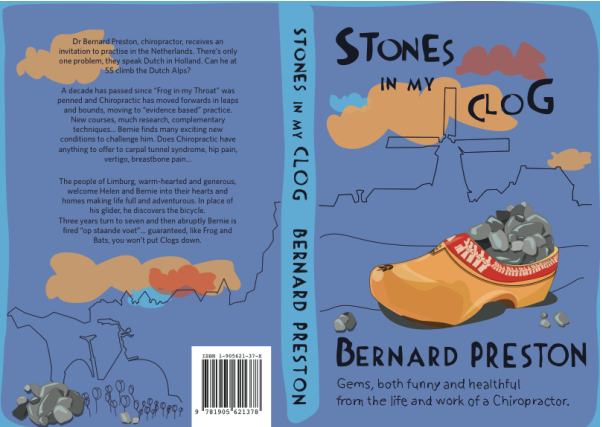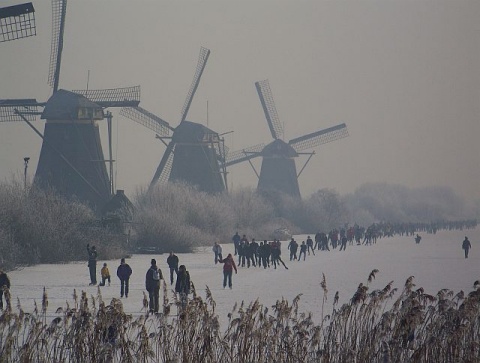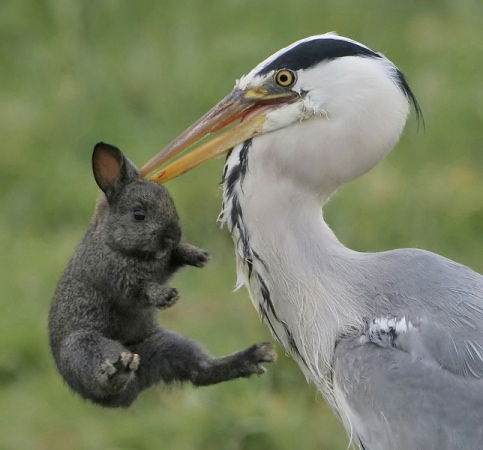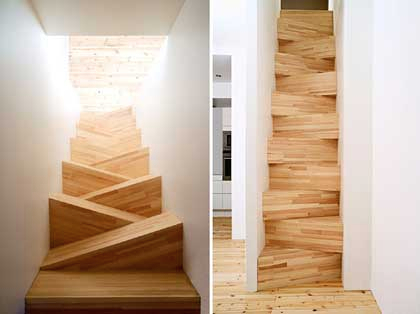- Bernard Preston homepage
- Stones
- The Enemy Within
The enemy within
The word ‘Netherlands’ literally means the ‘lower lands’, and low they are. So low, remarked one wag, that the Dutch are saved only by being dammed. Saved or damned, religion aside, river and tide have swept across Holland since time immemorial, gnawing away at the dykes, swamping the polders and initiating a folklore of the small boy Hans Brinkers saving the nation from the cruel sea. Anyone who’s been inside a five hundred year old windmill, the mechanism made entirely of wood, will attest to the engineering genius of the Dutch. Sixty percent of Holland lies beneath sea level and so it’s no coincidence that they have become the world’s supreme masters of water management.

The enemy within is a short story from Stones in my Clog by Bernard Preston.
This page was last updated by Bernard Preston on 3rd February, 2021.
- Bernard Preston homepage
- Stones
- The Enemy Within
"Water is the Netherland’s greatest enemy."
- Dutch proverb.
“Holland . . . lies so low they're only saved by being dammed."
- Thomas Hood
The last great flood in Holland was in 1953 when a freak combination of wind and tide, and furious storm caused a great surge of seawater to press urgently up the Eastern Schelde, finally breaching the dykes on a blustery, merciless winter’s night. The Dutch were for once caught napping and nearly two thousand people were drowned. Considerably fewer some might say than the hundred thousand reputed to have drowned in a storm in 1228 in Friesland, one of the northern provinces, but it was a nevertheless a great twentieth century catastrophe; and quite different to/from the planned flooding of Zeeland during WWII to thwart the invading German troops.
Safe, by and large, behind their dam walls from the devastating storms that swept in from the sea, there was however no saving the Dutch from the armies that plundered them from the land. Either it was the Spaniards who, with inquisitional fervour, sought to make serfs of the damned Calvinists, or the Napoleon with his guillotines, or the British who would hang a dozen dissidents in one tree. Believe, or die. And then Hitler’s soulless men came with their Panzers and Stukas and shunted off over one hundred thousand Jews in cattle trucks to the gas chambers. Bruised and shaken, for the most part the Dutch seemed to manage; adjust and adapt, and dig or die. Somehow, setting their sails to the adverse winds, they coped, but quite unable to build dykes high enough which could protect them from man’s inhumanity to man.
The mystery of why God should allow such disasters as beset us, the just and the wicked, brings with it the temptation to rail against the Almighty. The first Dutch lesson I set myself before coming to Holland was to recite the Lord’s Prayer. Perhaps they too, a deeply religious people, were saved by the daily recital of ‘Lord, forgive them that trespass against us’ from nurturing that particularly destructive root, a bitter spirit.
Stones in my Clog
The Enemy Within is one chapter from Stones in my Clog, Bernard Preston's third book of chiropractic short stories.
Set in the Netherlands where he spent seven years in practice, the book gives insights into not only the chiropractic profession, busy at the coalface, but also of a quite different people.
The Zeeland calamity however was just too much. Something had to be done and the Dutch set out once and for all to master their great enemy. Putting their engineers to work, they planned one of the world’s great triumphs of man over water, the Delta project. A mammoth series of sluice-gates were built across the Eastern Schelde finally conquering the invading water for all time. Fierce debates raged as to whether it should be a permanent wall, much cheaper, like that which turned the salt Zuiderzee into a freshwater lake, killing the rich sea life, or should the gates remain open, allowing saltwater in, only to be closed when the great winter storms threatened? The naturalists won, a vociferous minority who would not be silenced, and I for one am eternally grateful: I love Dutch mussels!

Helen and I took to leisurely walks along the canals, sticking to the banks in the winter. I couldn’t afford to break an ankle by venturing onto the ice. So instead we would watch young and old don their skates and, like a flock of canaries set free, they would joyfully zoom onto the ice, the sound of chatter and laughter cheerful on the frosty air as they called to each other. A rough red-haired man in a black jacket took a tumble. His skate had snagged one of the rockets that lay imbedded untidily in the ice, a reminder of the gay abandon of Oud-op-Nieuw as old and young alike sought to forget the year behind. I felt a bit sick as I heard the crunch of bone on unforgiving ice and a cry of pain, but his fellows only burst into laughter. He wouldn’t be able to sit for a few months poor man, unless he knew someone who could care for his coccyx. Dare I hand him a card, I wondered?
A small boy wiped a dripping nose on his sleeve, and called excitedly to his sister, still busying herself with her skates on the banks. “Schiet op ,’ he shouted. Their mother, clad in thick blue scarf and matching woolly cap was already on the ice, seemingly unsure whether to fuss over her chicks or let them grow up on the ice the hard way. There’s much to be learned from a good fall – if it doesn’t crack a skull, or break a limb. Fortunately we saw no more injuries. And then there were the lovers, hand in hand, drifting slowly away from the masses, chatting quietly, whilst a dozen serious skaters, leaning urgently forward with their hands clasped firmly behind their backs, carefully avoided the children and those who had fallen from grace, and sped away breathing out clouds of fog.
In the summer it all looked quite different and we were glad to be on the stage. ‘Gosh, Bernie, doesn’t that bird look mean,’ called Helen one Sunday afternoon as we took a laid-back punt along the Kinderdijk canal. We’d seen the famous windmills that first winter from the shore, with its myriad skaters, but Helen had suggested we hire a small boat and enjoy them from the vantage of the canal. ‘It’s a bit like our Grey Heron,’ she said trailing her hand in the warm water, alternately watching the eddies and spying out the wildlife and the windmills as we drifted gently by.
Sure enough, with his deadly spear, the ugly reiger did give the impression of being mean. Some of my patients had described to me how the monster waded their fishponds in the winter months, spearing their much-prized Japanese Koi. ‘I’m sure it is a Heron of sorts, Helen; I must ask. Look, it seems pretty intent on something there on the bank.’

‘Oh, no, I can’t bear it!’ Helen squealed as the deadly spear darted into some thick undergrowth, savagely lifting a tiny bunny from its hiding place amongst the buttercups and daisies. Abruptly she covered her face with her hands.
‘Quick, give me your digi!’ I said reaching for her camera. I fired off a quick series of pics. First the poor little bunny hanging by the scruff of its neck from the heron’s beak, the next firmly held in the huge bird’s mouth and the third just a large bulge, clearly wriggling and writhing, as it slid, still protesting, slowly down the heron’s long slim neck. ‘I wonder if it’s the same as giraffes and humans and has seven bones in the neck,’ I laughed.
‘Oh, you heartless devil! How can you be talking so nonchalantly about bones as if watching a poor little rabbit vanishing down that monster’s neck is the most normal thing in the world!’ Helen gave the bird an unexpected splash with her oar, abruptly turning our little boat, so she wouldn’t have to watch the rest of the heron’s obvious pleasure. For my part, I couldn’t tear my eyes away as the fierce predator gave a series of jerks of gastronomic delight, before again spying down into the same bush. I decided it was time to move on before my poor wife vomited up her breakfast! ‘Come on, forget about the horrid heron, we came here to see the windmills.’ Taking her oar, I quickly rowed on, while Helen kept her eyes tightly closed. I couldn’t but help a quick glance back to see if a second bunny was on its way down the hatch. It wasn’t.
It wasn’t until we reached a point where the heron was out of sight that she opened her eyes. ‘That was simply too ghastly, Bernie. Do you think we can go home?’
‘Of course not!’ I said with a laugh. ‘Come on, get out your guidebook and tell me when these windmills were built. I’ve counted seventeen so far, but I think there are more around that bend.’
So Helen took some solace in her planet guide, telling me about the ancient windmills and how they were used to pump the water out of the polders and back into the river.
Dutch is a rich and difficult language, full of many strange and beautiful sayings. Have you “got the task under your knees”, and have you “fired the bullet through the church” or are you “suffering from baked pears”? But one of their favourite sayings, “Water is Holland’s greatest enemy”, has been emasculated by the Delta project, perhaps giving me the opportunity to be remembered in Holland. Water is no longer the great enemy and it wasn’t long before I reworked the saying. Holland has indeed another great enemy, this one within the bosom of their own homes. De trap is Nederlands grootste vijand.
(The staircase is the Netherlands greatest enemy, steep and narrow with a wicked tapered turn near the top.)

The very first patient in my appointment book after I had arrived in Limburg, the southernmost province of Holland, was ‘De heer Soert’. I was surprised when Arjen turned out to be a small boy of seven, accompanied by his anxious parents. My grasp of Dutch was miserable and they, like many Limburgers, spoke only stilted English. And I still had no inkling of the great enemy that lurks in wait within every Dutch household. For a nation of such great hydro-genius it remains to this day a great mystery to me that their architects continue to design such dangerous monstrosities. It wasn’t long before I learned that almost everyone in Holland has, at one time or another, thundered down the stairs. On the way to the loo in middle of the night, the poor lad had given his head a cracking blow against the plinth at the bottom of the staircase. Their old home had no toilet upstairs. The doctor at the night-care diagnosed a concussion to his brain, and instructed Arjen’s parents to wake him every couple of hours, and keep him quiet for a few days. What the doctor didn’t do was to order an X-ray.
‘Arjen has terrible headaches, and a very sore neck,’ ventured Mrs Soert. They were a tiny couple, though he rugged looking, and Arjen, their first born, was a mere slip of a lad. ‘When did it start?’ I struggled in my ‘fanagalo’ as the Zulus describe the white man’s inept attempts to master their language. Those first few months were a Dutch nightmare. ‘He fell down the stairs three nights ago,’ added Mr Soert. He was strongly built, almost athletic, but quite unlike the typical Dutchman, the tallest nation of men in the world. It was only later that I learned that judo was his sport. Behind the mousy brown hair and strong, courageous face lurked apparently a fearsome opponent on the mat. ‘We took him to the ER where the doctor examined him, and sent him home.’
‘Was Arjen vomiting?’ I asked. ‘Was he unconscious?’
Mrs Soert nodded. Mr Soert shook his head. I was mystified for a moment until I realized it was stupid of me to ask two questions. Arjen did not pass out, but he did vomit several times during that first night. The doctor asked him several questions like “what’s your name?” and “where do you live?” The lad had been quite confused, confirming the doctor’s diagnosis of concussion.
‘We must take X-rays of his neck,’ I said. ‘He could have a fracture’. They nodded hesitantly.
I gave Arjen a gentle mobilizing treatment and pleaded with our secretary to write a short note to the doctor for x-rays. I wasn’t going to adjust his neck; the risk of fracture was far too high. The lad could barely turn his head to the right, and the neck compression tests were strongly positive. I fumed: it took 10 days to get the x-rays. The report described the X-rays of Arjen’s neck as normal. So they were but the radiologist hadn’t looked carefully at the boy’s skull. The fracture right through the cortex of bone was very clear. Little wonder he had a headache! Was there a subdural bleed? Fortunately there were no signs of complications.
Despite all the delays, and a chiropractor who was clearly out of his depth, Arjen turned out to be tough and resilient. Within a few weeks of my cautious ministrations he recovered completely. One of the lucky ones. It wasn’t many months before I realised that a staircase injury lay behind a great number of the life-long headaches that many of my patients suffered from. A stitch in time, I hoped it would save Arjen from ninety years of misery. Many of the Dutch live to a ripe old age. Those that don’t smoke.
After that first visit, it was Arjen’s mother who brought him in for treatment. She was not unattractive with genuine blond hair tied up in a ponytail. Hardly able to speak even a few simple, basic sentences in good Dutch, I was totally out of my depth, so we had difficulty communicating. Expecting that his injury would almost invariably leave its mark I insisted that they bring Arjen back every few months for maintenance care. Take good care of your patients, and they will take care of you my famous professor once remarked. I never forgot the wise man’s words.
I didn’t think anything of it, but some months later it was Arjen’s dad who brought the lad for his treatment, “under control” as the Dutch neatly say. The term is used equally for a patient with diabetes or high blood pressure. Most conditions, medical and chiropractic, are not going to be cured. Instead it’s under control that they are adequately managed. At the third of the two-monthly visits, rather more confident in Dutch, I became vaguely uneasy about Arjen’s dad. He didn’t look well, and I found the confidence to tackle an altogether more difficult subject.
‘Is everything okay? You are looking tired.’
He nodded. ‘I’m not sleeping well, and I am getting terrible headaches. But I’m okay,’ he added. Clearly he wasn’t.
I was at that stage of my Dutch career that I was desperately trying to build up my practice, and the easiest place to do that is with family and friends of existing satisfied patients. ‘May I palpate your spine?’ I asked. ‘The problem may be in your neck.’ A simple thirty-second assessment will usually give a chiropractor a pretty shrewd idea as to whether the headaches may be coming from the neck. It’s no substitute for a proper examination, of course, but it is the right place to start in the management of headaches. After all, seventy percent of headaches originate from the neck. Mr Soert’s neck was very fixated, mostly likely from an old judo injury, I speculated.
‘I’m sure your headaches are coming from your neck, Mr Soert. I suggest you make an appointment for a proper examination.’
He shook his head. ‘I’m okay. Don’t bother about me. It’s Arjen I am concerned about.’
‘Arjen’s doing fine now. He doesn’t need much further Chiropractic care; it’s you I am worried about.’
‘No, I can’t afford it. Really, I will be fine.’
‘But surely you have the basic insurance that pays for some limited chiropractic?’
Newsletter
Our newsletter is entitled "create a cyan zone" at your home, preserving both yourself and Mother Earth for future generations; and the family too, of course. We promise not to spam you with daily emails promoting various products. You may get an occasional nudge to buy one of my books.
Here are the back issues.
- Lifestyle and ideal body weight
- What are ultra-processed foods?
- Investing in long-term health
- Diseases from plastic exposure
- Intensive lifestyle management for obesity has limited value
- A world largely devoid of Parkinson's Disease
- The impact of friendly bacteria in the tum on the prevention of cancer
- There's a hole in the bucket
- Everyone is talking about weight loss drugs
- Pull the sweet tooth
- If you suffer from heartburn plant a susu
- Refined maize meal and stunting
- Should agriculture and industry get priority for water and electricity?
- Nature is calling
- Mill your own flour
- Bake your own sourdough bread
- Microplastics from our water
- Alternative types of water storage
- Wear your clothes out
- Comfort foods
- Create a bee-friendly environment
- Go to bed slightly hungry
- Keep bees
- Blue zone folk are religious
- Reduce plastic waste
- Family is important
- What can go in compost?
- Grow broad beans for longevity
- Harvest and store sunshine
- Blue zone exercise
- Harvest and store your rainwater
- Create a cyan zone at your home
‘Yes, but I still have to pay an extra fifteen euros.’ He attempted a bright smile that anybody could see through, but there was nothing further for me to say. It was only later that I learned the sorry tale from Claudia, our secretary. Arjen’s mother had started a chat room affair with someone in Canada and abruptly deserted her husband and their two children.
Arjen’s dad had mentioned something about cyber-sex, but I had no clue as to what he was talking about. Rather than display my ignorance, I kept silent. The chat room shark came on a visit to Amsterdam and within a month she was gone. After some time she did come back but Mr Soert, rightly or wrongly, wouldn’t have her back.
Arjen’s case was a good preparation for what lay ahead. Management of staircase injuries soon became commonplace in my practice, though one would never ever dare describe them as routine. Mostly people fell onto their buttocks injuring their coccyx and pelvic girdle, but there were also many injuries to the shoulder as they desperately tried to halt the downward plunge. Ribs, necks, badly sprained ankles and once a heel fractured into eight pieces; virtually no part of the body is spared from the treacherous Dutch staircases. Even a six-week old baby as her mother tripped fell headlong forwards from top to bottom. That wicked little tapered turn near the top is so dangerous.
Our secretary Claudia’s husband had headaches of quite a different nature. He suffered from ‘violin jaw’!
Useful links
THE ENEMY WITHIN
Did you find this page useful? Then perhaps forward THE ENEMY WITHIN to a fellow bookworm.
Buy Book I from A Family Affair, The Bostonians …
- Bernard Preston homepage
- Stones
- The Enemy Within
Address:
56 Groenekloof Rd,
Hilton, KZN
South Africa
Website:
https://www.bernard-preston.com